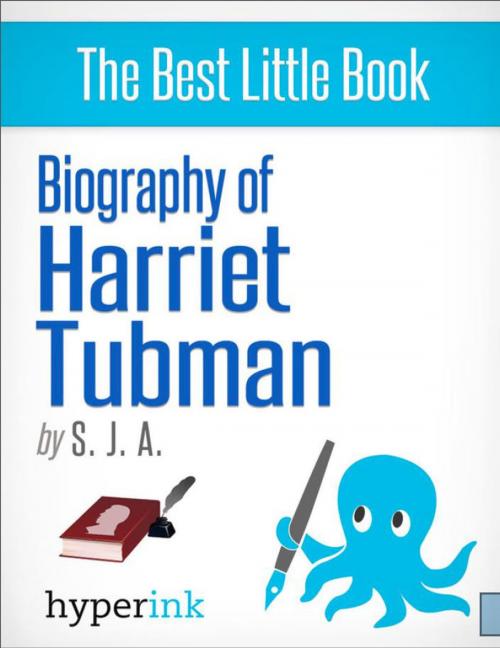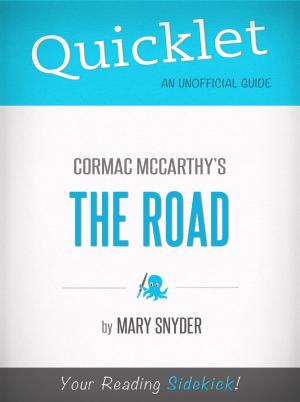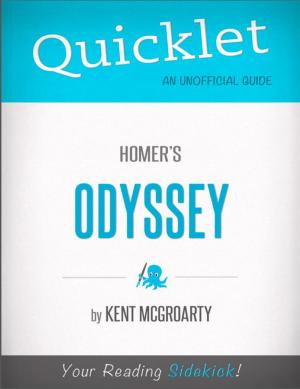| Author: | S. J. A. | ISBN: | 9781614647225 |
| Publisher: | Hyperink | Publication: | March 14, 2012 |
| Imprint: | Hyperink | Language: | English |
| Author: | S. J. A. |
| ISBN: | 9781614647225 |
| Publisher: | Hyperink |
| Publication: | March 14, 2012 |
| Imprint: | Hyperink |
| Language: | English |
ABOUT THE BOOK
The annals of American history are full of heroes who fought for freedom. But few in those legions are women, and even fewer are also African-American. Harriet Tubman, an African-American woman, was a famous anti-slavery activist, best known for helping free slaves before the Civil War. Leading slaves through the Underground Railroad, she helped to secretly transport them into the northern states where they could be free. Tubman remains an iconic hero who left her family behind to ensure that they all remained free and repeatedly making trips back to the South to free other slaves - always at the risk of her own hard won freedom. In 19 trips she freed over 300 slaves, all while evading capture of herself and the refugees she was guiding.
Tubman's importance to the Abolitionist movement cannot be overstated; in addition to freeing slaves, she provided those who were still enslaved with hope. Tubman successfully freed so many slaves that the African-American community quickly nicknamed her 'Moses'. Many slaves may have found slavery a little bit more bearable, believing Tubman would eventually come to rescue them.
Although Tubman is most famous for having freed enslaved African-Americans, her service to the community didn't end with the start of the Civil War. During the war, she worked as a Union spy, a nurse to wounded soldiers, and participated in a mission to free 756 slaves during the war.
MEET THE AUTHOR
S. J. A. is an experienced writer and a member of the Hyperink Team, which works hard to bring you high-quality, engaging, fun content. Happy reading!
EXCERPT FROM THE BOOK
Tubman's effort to advance the status of African-Americans continued after the Civil War as well. Despite personal struggles with poverty, she always attempted to help support newly freed African-Americans. She used the proceeds from a book about her life to purchase land for a group home for sick or otherwise needy African-Americans. Tubman purchased the land in 1896 and gave it to the Ame Zion Episcopal Church in 1908, as she could not complete the project herself. She lived in the home after its completion until her death in 1913, telling the home's many visitors stories about her experiences so that they would not be forgotten.
Unfortunately, Tubman was not honored by the U.S. government for her many years of service before and during the Civil War. However, shortly before her death, the U.S. Congress finally passed a resolution agreeing to give her a pension of $20/month. The U.S. government's lack of validation demonstrates that Tubman was doing what she did for the African-American community and for higher principles such as freedom and equality; she never seemed to care that her government didn't thank her properly for a job well done.
Tubman was born in Maryland, a slave state in the 1800s, as Amarita Ross. Born to two slave parents, Tubman was born a slave, sometime between 1820 and 1822; her exact birth date is unknown, probably because masters often did not keep adequate records of slave births. She was required to do what her masters told her to do and was always in danger of being sold to someone else and separated from her family. For the first few years of her life, her family was more stable than many slave families, as her masters did not choose to sell any of the slaves to other masters.
Slaves were generally forced to remain illiterate so that they wouldn't gain the education or knowledge necessary to realize they were being mistreated and potentially overthrow their masters. Therefore, Tubman was not allowed to learn to read or write. But though she wasn't educated, she was intelligent. As a child, this intelligence must have made her aware that slavery wasn't the natural order of things.
ABOUT THE BOOK
The annals of American history are full of heroes who fought for freedom. But few in those legions are women, and even fewer are also African-American. Harriet Tubman, an African-American woman, was a famous anti-slavery activist, best known for helping free slaves before the Civil War. Leading slaves through the Underground Railroad, she helped to secretly transport them into the northern states where they could be free. Tubman remains an iconic hero who left her family behind to ensure that they all remained free and repeatedly making trips back to the South to free other slaves - always at the risk of her own hard won freedom. In 19 trips she freed over 300 slaves, all while evading capture of herself and the refugees she was guiding.
Tubman's importance to the Abolitionist movement cannot be overstated; in addition to freeing slaves, she provided those who were still enslaved with hope. Tubman successfully freed so many slaves that the African-American community quickly nicknamed her 'Moses'. Many slaves may have found slavery a little bit more bearable, believing Tubman would eventually come to rescue them.
Although Tubman is most famous for having freed enslaved African-Americans, her service to the community didn't end with the start of the Civil War. During the war, she worked as a Union spy, a nurse to wounded soldiers, and participated in a mission to free 756 slaves during the war.
MEET THE AUTHOR
S. J. A. is an experienced writer and a member of the Hyperink Team, which works hard to bring you high-quality, engaging, fun content. Happy reading!
EXCERPT FROM THE BOOK
Tubman's effort to advance the status of African-Americans continued after the Civil War as well. Despite personal struggles with poverty, she always attempted to help support newly freed African-Americans. She used the proceeds from a book about her life to purchase land for a group home for sick or otherwise needy African-Americans. Tubman purchased the land in 1896 and gave it to the Ame Zion Episcopal Church in 1908, as she could not complete the project herself. She lived in the home after its completion until her death in 1913, telling the home's many visitors stories about her experiences so that they would not be forgotten.
Unfortunately, Tubman was not honored by the U.S. government for her many years of service before and during the Civil War. However, shortly before her death, the U.S. Congress finally passed a resolution agreeing to give her a pension of $20/month. The U.S. government's lack of validation demonstrates that Tubman was doing what she did for the African-American community and for higher principles such as freedom and equality; she never seemed to care that her government didn't thank her properly for a job well done.
Tubman was born in Maryland, a slave state in the 1800s, as Amarita Ross. Born to two slave parents, Tubman was born a slave, sometime between 1820 and 1822; her exact birth date is unknown, probably because masters often did not keep adequate records of slave births. She was required to do what her masters told her to do and was always in danger of being sold to someone else and separated from her family. For the first few years of her life, her family was more stable than many slave families, as her masters did not choose to sell any of the slaves to other masters.
Slaves were generally forced to remain illiterate so that they wouldn't gain the education or knowledge necessary to realize they were being mistreated and potentially overthrow their masters. Therefore, Tubman was not allowed to learn to read or write. But though she wasn't educated, she was intelligent. As a child, this intelligence must have made her aware that slavery wasn't the natural order of things.















